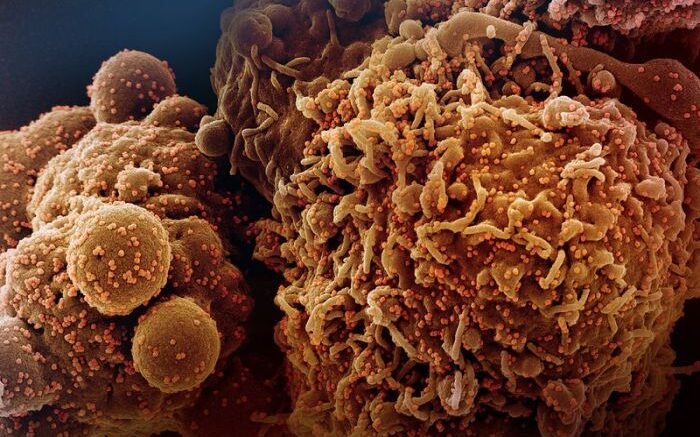Ritonavir-boosted nirmatrelvir and molnupiravir are currently used in the U.S. and in other countries to treat non-hospitalized patients who have mild-to-moderate COVID-19 and who are at high risk for progression to severe disease. The associations of these two oral antiviral drugs with hospitalization and death resulting from infection with new SARS-CoV-2 Omicron subvariants, particularly BQ.1.1 and XBB.1.5, are unknown.
Lin, et al. (2023) sought to assess the association of nirmatrelvir or molnupiravir use with the risks of hospitalization and death among patients infected with new Omicron subvariants.
There were 68 867 patients (29 386 [42.7%] aged ≥65 years; 26 755 [38.9%] male patients; 51 452 [74.7%] non-Hispanic White patients). Thirty of 22 594 patients treated with nirmatrelvir, 27 of 5311 patients treated with molnupiravir, and 588 of 40 962 patients who received no treatment died within 90 days of Omicron infection. The adjusted HRs of death were 0.16 (95% CI, 0.11-0.23) for nirmatrelvir and 0.23 (95% CI, 0.16-0.34) for molnupiravir. The adjusted HRs of hospitalization or death were 0.63 (95% CI, 0.59-0.68) for nirmatrelvir and 0.59 (95% CI, 0.53-0.66) for molnupiravir. The associations of both drugs with both outcomes were observed across subgroups defined by age, race and ethnicity, date of COVID-19 diagnosis, vaccination status, previous infection status, and coexisting conditions.
These findings suggest that the use of either nirmatrelvir or molnupiravir is associated with reductions in mortality and hospitalization in patients infected with Omicron, regardless of age, race and ethnicity, virus strain, vaccination status, previous infection status, or coexisting conditions. Both drugs can, therefore, be used to treat non-hospitalized patients who are at high risk of progressing to severe COVID-19.
Reference: Lin D-Y, et al. Nirmatrelvir or Molnupiravir Use and Severe Outcomes From Omicron Infections. JAMA Netw Open. 2023;6(9):e2335077. doi:10.1001/jamanetworkopen.2023.35077
